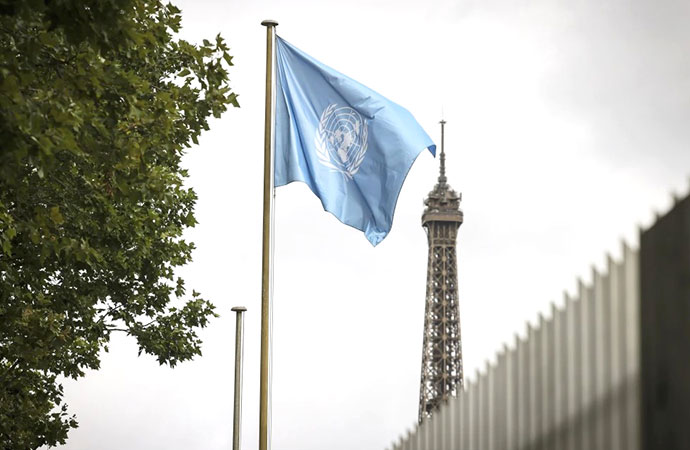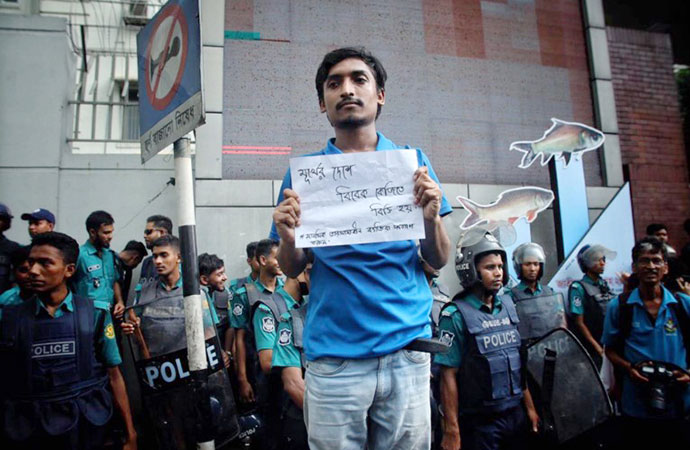Column

The formal media often called the professional media in Bangladesh operates as a by-product of crony capitalism. Financially, it's largely about a person or group investing to own a losing unit which self declares to provide unbiased information to the consumer but doesn't selectively in order to gain social capital that can be leveraged for financial gain elsewhere.
So news making and accuracy let alone creative or critical thinking is not the main issue in Bangladesh media. Ensuring their usefulness by providing positive support or not endorsing negative analysis of the powers that be is the main issue. In return as per the principles of crony capitalism, economic gain is mostly assured. The formal media's role in crony capitalism is thus more defined than many of its sub-components.
On the flip side are the critics who do the same as far as objective news making goes and in case of regime changes most benefit from repeating the cycle.
Crony capitalism is more attuned to a rural society management model but is applied to State led (not necessarily owned) economies dealing with large scale financial transactions. The Statist formal system is neither fully formal nor informal but hybrid and the functioning within the economic system is neither efficient nor productive including the media.
The by-product elites
The media under crony capitalism also produces a sub-elite class in the form of media functionaries without whom the industry can't run. Since the media is neither competition based nor responsive to any formal market practices such as quality control, it's subjected to turmoil like any units close to the economic system chronic in a dysfunctional State.
The dysfunctional hybrid state produces its own crisis due to the nature of crony capitalism that also requires correction to protect the very same crony based system. Since everything is 'commercialized" including governance, protection of crony capitalism requires adjust/ change too whether it's a regime's certain institutions or the regime itself.
These institutions include not just the media but the sub-elite produced by a particular part of a regime. This functional elite is part of the lower rungs of crony capitalism and most are wage workers so for self-sustaining they have no option but to play along. They are not stakeholders but know the next regime will also require them.
However, many are victims of redundancies as well just as many workers are often laid off. Unlike the proletariat they are not doubly free but doubly "chained" since they develop elitist intent, are otherwise qualified but don't know how to operate outside the realms of crony capitalism.
When crony capitalism economies undergo market correction, they take time to settle down as is noted. And both the elite and the sub-elites- owners and functionaries - are both cast into a new crisis during this correction phase. Bangladesh media could be experiencing this at this point.
However, a new pressure is now threatening the media system which is rooted in the nature of the state. The Hybrid State which produces the system has no tools to control the informal space from which social media has emerged and is stronger than the formal or hybrid media creating the biggest danger to the crony capitalism based media.
Hybrid media and the informal space challenge
The media in Bangladesh has been called enablers of corruption and for collaboration with the last regime which is to be tried for various alleged crimes. Several major faces, not necessarily players, largely present in the visual media presence are in jail and the media sub-elite have been in general demonized. However, the production of the new elite and sub-elite are on as expected. While the earlier old and new media owning class are mostly the same a mixed old and new section of the sub elite production is actively on.
No one now doubts the power of social media which has become the dominant media and yet retains its informal nature. Its access has increased and crowds have swelled making the formal owned media position weak. This scenario is the result of the inefficiency of the formal space whether of the State institutions or the media. Crony capitalist system is unable to handle not just social informality while taking advantage of informal crony economics that claims formal's 'legitimacy'.
This results in the continuation of the inefficient market since the State can't transition to formality and so can't the State based crony capitalism driven media. Failure or refusal to be formalized by the State results in turmoil and regime changes. Changes ensure continuation of the old system. A new group of sub-elites emerge to roll out prescriptions which are supposedly formal but the very process is informal and thus no formal change occurs.
Since the State has limited organic reality and is already established in its dysfunctional hybridity it can't function under market capitalism, spends time delaying the process and finds ways to ensure a crony system in all the statist spaces including in the media, its major supporter.
Social media meanwhile becomes the largest producer of informal content and in this negotiation with this fully informal, the crony media also undergoes change to ensure a robust survival in the new phase. It begins to mimic social media and contents are designed to ensure social media views as traditional channels including street sales have all but evaporated.
The future of the media
Conventional crony capitalism hasn't failed but new arrangements are on but the hybrid system has again exposed its lack of capacity to function as a formal state with organized changes. Meanwhile, the national economy remains locked in informality while the State busies itself in formal institutions and economics which are largely limited to the elite and not particularly useful.
The informal sector which includes both external and internal migration and agriculture is now more robust than ever and the hybrid State system also depends on the informal economy.
The media has tried to adjust with this new reality of the challenge by the informal media sector by adopting click baiting, sensationalism and focus on tabloid issues for their own survival. Lacking the systemic capacity to function in efficient markets, the media will/may become the reluctant younger siblings of social media.

























Leave a Comment
Recent Posts
Religion and Politics: A Toxic ...
At Dhaka University, cafeteria workers have been told not to wear shor ...
Enayetullah Khan joins AsiaNet ...
AsiaNet’s annual board meeting and forum was held in Singapore, ...
In a New York minute
Many leaders back a UN call to address challenges to ..
Defaulted loans at Non-Bank Financial Institutions ( ..
How the late Zubeen Garg embodied cultural affinitie ..